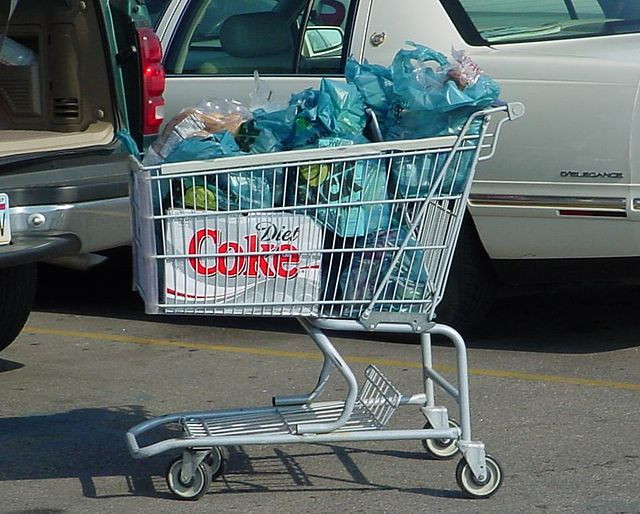California is on the verge of implementing a comprehensive ban on plastic grocery bags, including those deemed recyclable. The state legislature has passed two identical bills, AB 2236 and SB 1053, which seek to eliminate the use of reusable plastic bags in grocery stores. If either bill is approved by the opposing legislative chamber and signed into law by Governor Gavin Newsom, the ban will take effect on January 1, 2026.
The push for this legislation comes as part of California's ongoing efforts to address its plastic pollution problem. In 2014, California became the first state to ban single-use plastic bags, but allowed retailers to offer thicker, multi-use bags. According to the California Public Interest Research Group (CALPIRG), this measure has not effectively reduced plastic waste. In 2021, a record 231,000 tons of plastic bags were discarded in the state, prompting lawmakers to take more stringent action.
Jenn Engstrom, state director of CALPIRG, emphasized the need for the new legislation, stating, "California's current bag ban law, which allows businesses to replace thin plastic bags with supposedly reusable ones at checkout, clearly is not working. Plastic companies mass-producing thicker bags circumvent the law's intent. Then, inevitably, discarded bags pollute our communities and environment. We're thankful the state legislature is taking action to finally ban plastic grocery bags once and for all."
State Senator Catherine Blakespear, a Democrat and one of the principal sponsors of SB 1053, echoed these concerns. "California's original ban on plastic bags hasn't worked out as planned, and sadly, the state's plastic bag waste has increased dramatically since it went into effect. We need to do better. Shockingly, some 18 billion pounds of plastic waste flows into the oceans every year from coastal regions alone. California must do its part to eliminate this scourge that is contaminating our environment."
Under the proposed legislation, grocery stores would still be able to sell paper bags for a minimum of 10 cents each, provided they are made with at least 50 percent recycled content. This measure aims to reduce plastic waste while promoting the use of more sustainable alternatives.
However, not everyone supports the new bills. The American Recyclable Plastic Bag Alliance argues that banning reusable plastic bags could have unintended consequences. They claim that the ban could increase overall plastic use, raise costs for consumers, and move jobs out of California. "While bans will eliminate plastic carryout bags from the marketplace, forcing stores and shoppers to switch to alternative products with greater environmental impacts that are rarely reused enough to be more sustainable will not help our shared environment," the alliance stated.
The opposition also highlights the potential economic impact, suggesting that the elimination of thick, recyclable plastic reusable bags could lead to increased plastic use and higher costs for working families. "If SB 1053 passes, the thick, recyclable plastic reusable bags currently mandated by the state would cease to exist. Passing this bill would likely trigger increased plastic use, eliminate the use of 183 million pounds of recycled content in California each year, exacerbate our carbon footprint, move jobs out of California, and significantly raise costs for working families," the alliance warned.
The debate over these bills underscores the broader struggle to balance environmental sustainability with economic considerations. While the potential benefits of reducing plastic waste are clear, the transition to alternative materials and the impact on consumers and businesses must also be carefully managed.
As the legislation moves through the final stages of approval, the eyes of the nation will be on California. The state has long been a leader in environmental policy, and its decisions often set precedents for other states to follow. If the bills become law, they could pave the way for more comprehensive plastic bag bans across the country, reinforcing California's role at the forefront of environmental protection.






